Chapter 1 Historiography Development in the West Notes, Textbook Exercise Important Questions and Answers.
History Class 10 Chapter 1 Historiography Development In The West
Question 1.
(A) Choose the correct option from the given options and complete the statement.
(1) It may be said that …….. was the founder of modern historiography.
(a) Voltaire
(b) Rene Descartes
(c) Leopold Ranke
(d) Karl Marx
Answer:
(a) Voltaire
(2) ………… wrote the book entitled ‘Archaeology of Knowledge’.
(a) Karl Marx
(b) Michel Foucault
(c) Lucien Febvre
(d) Voltaire
Answer:
(b) Michel Foucault
(B) Identify and write the wrong pair in the following set.
(1) Georg Wilhelm Friedrich Hegel – ‘Reason in History’
(2) Leopold von Ranké – ‘The theory and Practice of History’
(3) Herodotus – ‘The Histories’
(4) Karl Marx – ‘Discourse on the Method’
Answer:
(1) Right pair: Georg Wilhelm Friedrich Hegel – ‘Reason in History’
(2) Right pair: Leopold von Ranké – ‘The theory and Practice of History’
(3) Right pair: Herodotus – ‘The Histories’
(4) Wrong pair: Karl Marx – Discourse on the Method.
Question 2.
Explain the following concepts.
(1) Dialectics
Answer:
(2) Annales School
Answer:
Question 3.
Explain the following with its reason.
(1) Historical research was driven to focus in depth on various aspects of women’s life.
Answer:
(2) Foucault called his method, ‘the archaeology of knowledge’.
Answer:
Question 4.
Complete the concept chart.
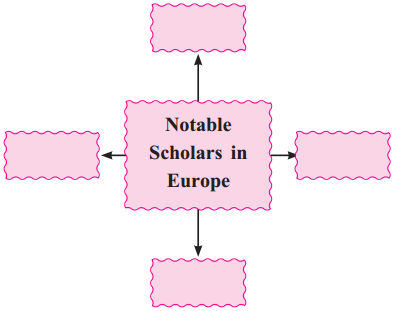
Answer:
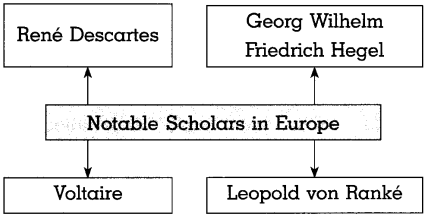
Question 5.
Answer the following in detail.
(1) Explain Karl Marx’s ‘Class Theory’.
Answer:
In the latter part of nineteenth century, German thinker, Karl Marx put forward ‘Class Theory’ in his book ‘Das Kapital’.
According to him:
(2) What are the four characteristics of modern historiography?
Answer:
The following are the four characteristics of modern historiography:
(3) What is feminist historiography?
Answer:
(4) Explain Leopold von Ranké’s perspective of history?
Answer:
Leopold’s view on ways to write history throws light on his perspective of history:
Historiography : Development In The West Questions And Answers Pdf Project
Obtain detailed information on your favourite subject and write its history. For example :
– History of Pen
– History of Printing technology
– History of Computers
Answer:
Memory Map
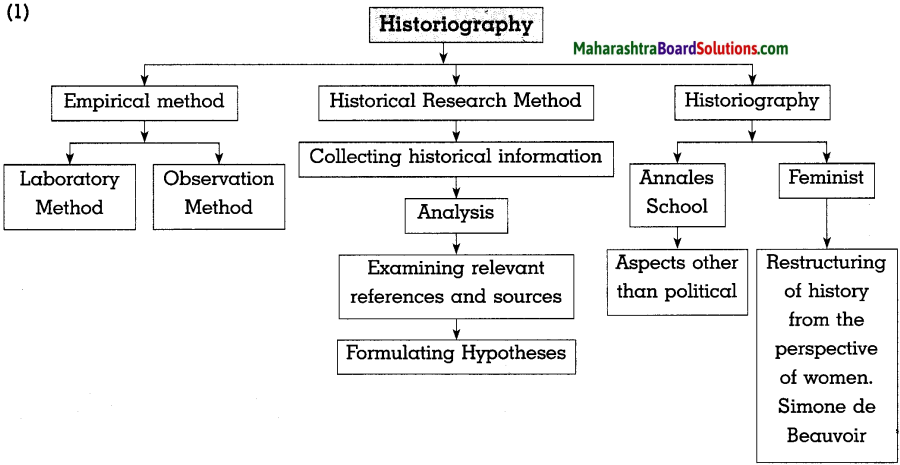
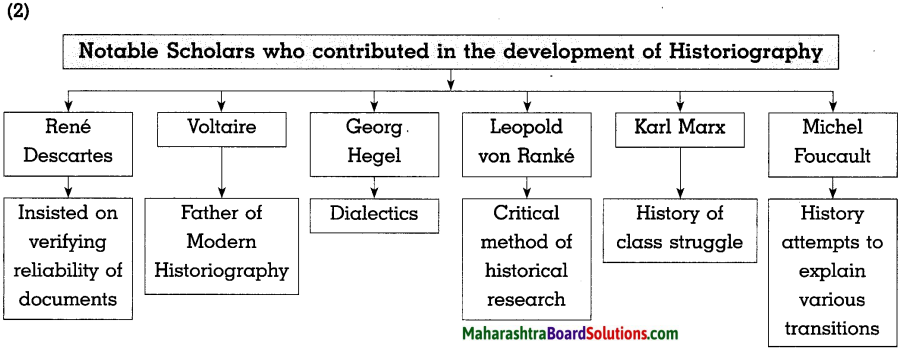
Question 6.
Choose the correct option from the given options and complete the sentences:
(a) A scholar who writes critical historical narratives is known as ………………………… .
(a) an archaeologist
(b) a historian
(c) a social scientist
(d) a language expert
Answer:
(b) a historian
(b) The earliest inscription in the world is displayed at Louvre museum in ………………………… .
(a) England
(b) France
(c) Germany
(d) Portugal
Answer:
(b) France
(c) The tradition of recording historical events can be traced back to ………………………… civilization in Mesopotamia.
(a) Sumer
(b) Egyptian
(c) Arab
(d) Mohenjodaro
Answer:
(a) Sumer
(d) The tradition of modern historiography has its roots in the writings of ………………….. historiAnswer:
(a) Roman
(b) Greek
(c) German
(d) French
Answer:
(b) Greek![]()
(e) ………………….., a Greek historian of the fifth century B.C.E., had used the term ‘History’ for the first time for his book entitled, ‘The Histories’.
(a) Leopold Ranke
(b) Georg Hegel
(c) Michel Foucault
(d) Herodotus
Answer:
(d) Herodotus
(f) In 1737 C.E., the ………………….. university in Germany had an independent department for history.
(a) Oxford
(b) Cambridge
(c) Gottingen
(d) Stanford
Answer:
(c) Gottingen
(g) Historiography of the nineteenth century was greatly influenced by the thoughts of …………………..
(a) Karl Marx
(b) Voltaire
(c) Georg Hegel
(d) Leopold von Ranke
Answer:
(d) Leopold von Ranke
(h) A new school of historiography arose in France known as ………………….. school.
(a) Translation
(b) Annales
(c) Nationalism
(d) Communist
Answer:
(b) Annales
(i) The method of analysis which is based on opposites is known as …………………. .
(a) Numismatics
(b) Arithmetic
(c) Polynomial
(d) Dialectics
Answer:
(d) Dialectics
(j) ………………….. considered subjects like psychological disorders, science of medicine, prison administration for historical analysis.
(a) Michel Foucault
(b) Leopold Ranke
(c) Karl Marx
(d) Voltaire
Answer:
(a) Michel Foucault
(k) After 1990, ………………….. were considered as an independent social class.
(a) labourers
(b) women
(c) men
(d) farmers
Answer:
(b) women![]()
(l) According to ………………….., historical realities should be presented in a logical manner.
(a) Georg Hegel
(b) Voltaire
(c) Simone de Beauvoir
(d) Herodotus
Answer:
(a) Georg Hegel
(m) According to ………………….., one should never accept anything as the truth till all the doubts are solved.
(a) Rene Descartes
(b) Karl Marx
(c) Voltaire
(d) Herodotus
Answer:
(a) Rene Descartes.
Question 7.
Identify the wrong pair in the following and write it:
(1)
| Thinker | Book |
| (1) Georg Wilhelm Friedrich Hegel | (a) Reason in History |
| (2) Leopold von Ranke | (b) The Theory and Practice of History |
| (3) Herodotus | (c) The Histories |
| (4) Karl Marx | (d) Discourse on the Method |
Wrong pair: Karl Marx – Discourse on the Method.
(2)
| Historian | Country |
| (1) Herodotus | Greece |
| (2) Simone de Beauvoir | Germany |
| (3) Michel Foucault | France |
| (4) Rene Descartes | France |
Wrong pair: Simone de Beauvoir Germany.
(3)
| Thoughts/Opinion | Historian |
| (1) All aspects of human life is important in the historiography | Voltaire |
| (2) He criticized imaginative narration. | Leopold von Ranke |
| (3) History is not about abstract ideas but about living people. | Rene Descartes |
| (4) Emphasized the rethinking of the male-dominated perspective of history. | Simone de Beauvoir |
Wrong pair: History is not about abstract ideas but about living people – René Descartes.
Question 8.
Complete the concept chart
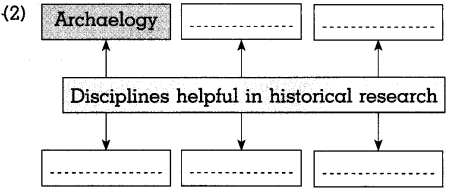
Answer:
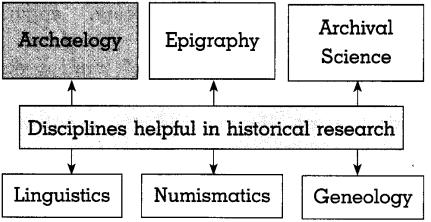
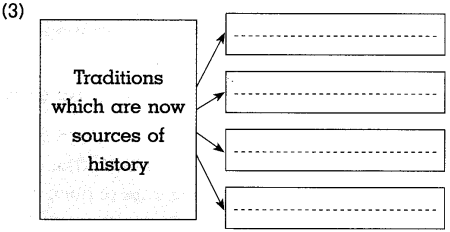
Answer:
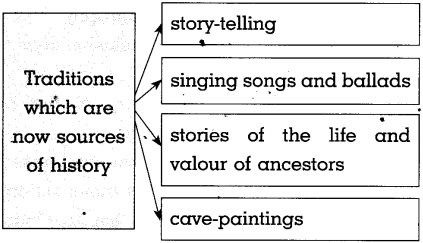
Question 9.
Prepare a flow chart on the given topic:
Stages of historiography
Answer:
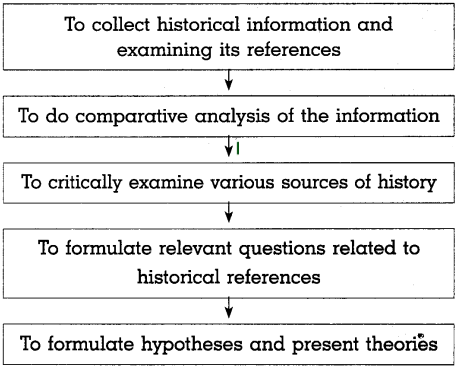
Question 10.
Write short notes:
(1) Georg Wilhelm Friedrich Hegel:
Answer:
(2) Karl Marx:
Answer:
(3) Michel Foucault:
Answer:
(4) Leopold von Ranke:
Answer:
Question 11.
Give reasons:
(a) In historical research, it may not be possible to use the method of experiments and observation.
Answer:
(b) Historiography in the 18th century gave importance to objectivity in history.
Answer:
Question 12.
Answer the following in 25-30 words:
(a) What is Historiography?
Answer:
(b) What did Rene Descartes insist upon?
Answer:
French Philosopher Rene Descartes insisted on the following in writing historiography:
(c) Why is Voltaire said to be the founder of modern historiography?
Answer:
Voltaire, a french scholar, opined that it was important to consider the following aspects while writing history:
(d) What are the objectives of writing history?
Answer:
History is researched and written down with following objectives:
(e) What progress was achieved in historiography in the eighteenth century?
Answer:
The following progress was achieved in historiography in the eighteenth century:
Question 13.
Head the given passage carefully and answer the questions given below:
(a) Who is called a Historian?
Answer:
A scholar who writes critical historical narratives is called a Historian.
(b) Complete the concept chart.
Factors which determined historian’s

Answer:
Factors which determined historian’s
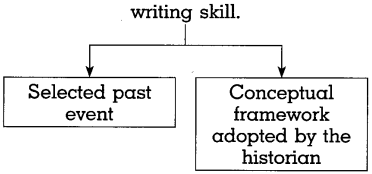
(c) How did the people in ancient societies preserve the events in the past?
Answer:
The ancient people preserved the events in the past so that they can pass them to the next generation. They used various means to do this:
Question 14.
Answer the following questions in detail:
(a) Which experts do we need in order to prove the reliability of historical documents?
Answer:
The following experts are required to prove the reliability of historical documents:
(b) Write Hegel’s view on history.
Answer:
Question 15.
Observe the inscription in the picture and write information it:
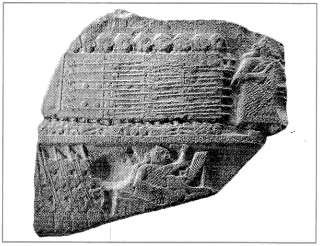
Answer:
Across: